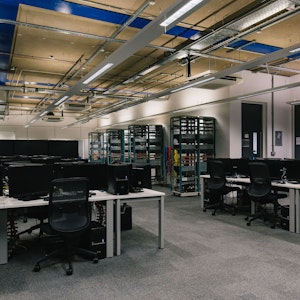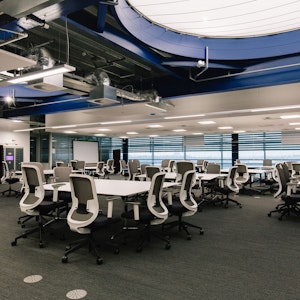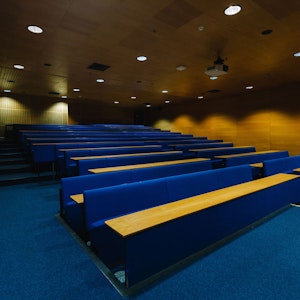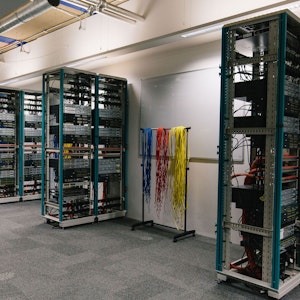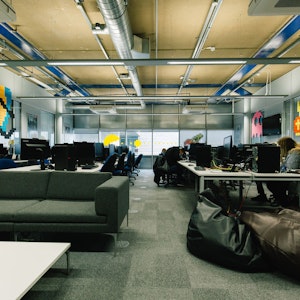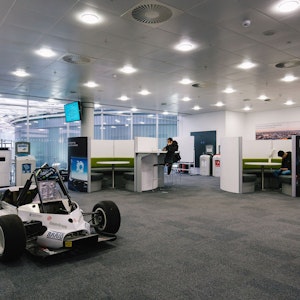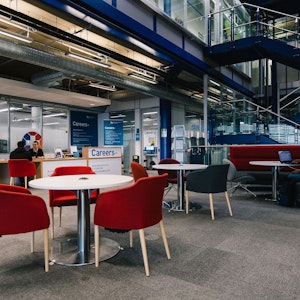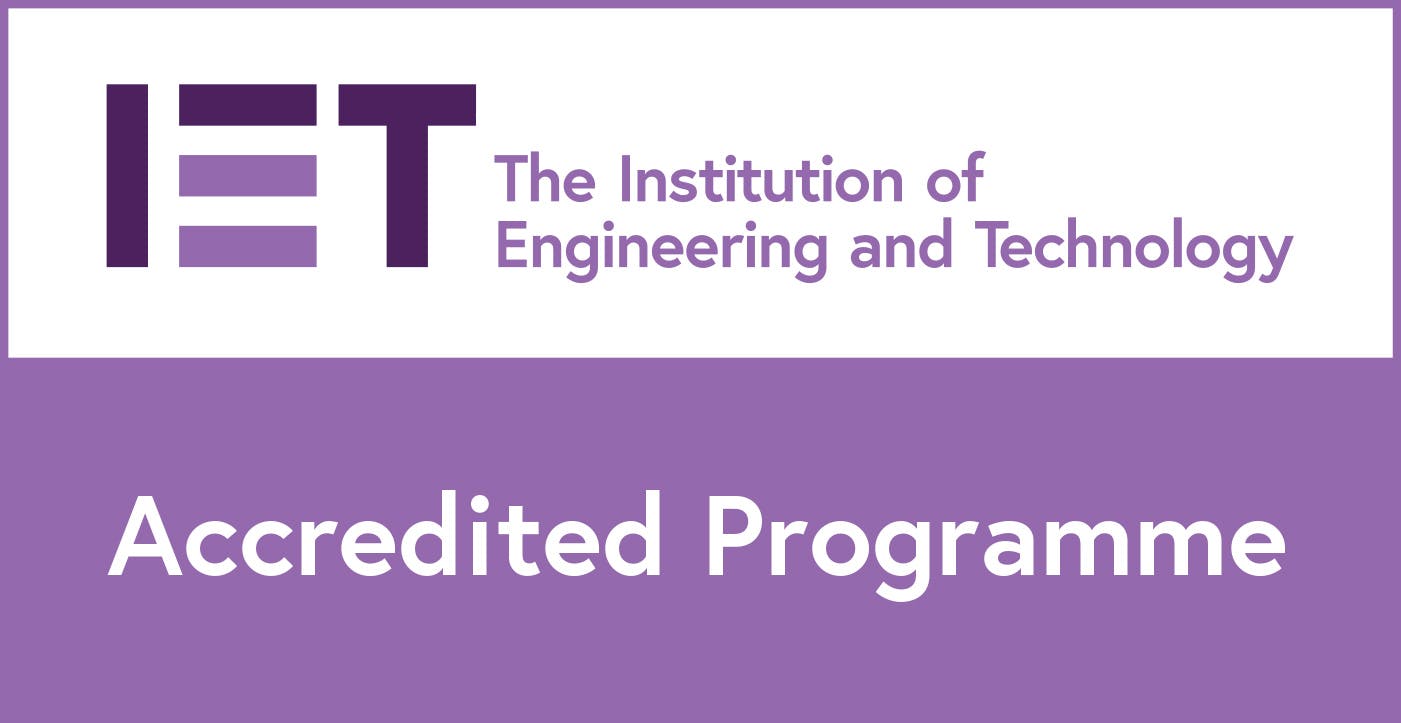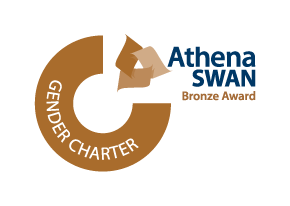
Digital Forensics with a Foundation Year - BSc (Hons)
Currently viewing course to start in 2024/25 Entry.
With digital forensics playing a critical role in the world of modern criminal investigations, our BSc Digital Forensics course with a Foundation Year will help you develop the practical and professional skills needed by employers in the digital forensics, cyber security and law enforcement sectors. You’ll have access to our specialist Digital Forensics labs....
- Level Foundation
- Study mode Full Time
- Location City Centre
- Award BSc (Hons)
- Start date September 2024
- Fees View course fees
- School School of Computing and Digital Technology
- Faculty Faculty of Computing, Engineering and The Built Environment
This course is:
Open to International Students
Overview
I'm a third year Music Technology student. When I was looking for Music Technology courses, Birmingham City University really stood out to me. I was keen on attending a Bachelor of Science and the course really focussed on the science aspects as well as maintaining the artistic elements of music and sound production. The support of the tutors has been fantastic. The professional standard and the facilities on campus are great due to their accessibility around the clock. The easy access to studios has been extremely helpful in completing my work and keeping on top of deadlines. At BCU, there's been a heavy focus on employability and what I could do with all aspects of my degree. The university has organised the industrial mentor forum, a space where students can communicate with alumni and people within the industry. The Acoustics Special Interest Group also consisted of more bespoke talks from people within the acoustics industry about different aspects of the work and how individual companies run. This is how I developed contact with an acoustic consultancy to complete my placement year. I act as an Acoustic Technician at Dragonfly Consulting. It went so well that I'm returning upon my graduation to continue working with them. The university has given me opportunities I don't think I would have received anywhere else.
I'm a second year computer science student studying at Birmingham City University. As a Computing student, there are plenty of computer labs available. There's entire rooms filled with Cisco networking equipment, as well as laptops that can be rented out to complete your work. Several of the facilities have now moved over to STEAMhouse, which is a £70 million build that is now the new home for Computing and Digital Technology students. One of the main things for me was getting employment at the end of my university degree. And Birmingham City University offers a wealth support for moving into the work environment. The course is a very important focus and a very industry focussed as well. I've been offered roles as a student demonstrator for Python programming. I found that the best way to show that you've understood something is to be able to teach somebody else.
I'm studying Computer Networks and Security. So far, I've really enjoyed my time at BCU. I felt really included within the student community. For the past two years, I've been involved in Innovation Fest. This is an annual event that showcases student work from the faculty. A lot of employers visit this festival, which allows us to widen our professional network. Throughout my time at BCU, I've had some time to
develop a relationship with the Careers+ team and go through tailoring my CV and my cover letters with them. Because of this, I have been presented with many opportunities which they have tailored to me and my needs. Through this, I was encouraged to apply for the women in tech competition.
So it was a one week program and I was working with the team from Cyferd. It's a software company,
and I successfully won and have taken up the placement year with them as a Junior Development Lead.
I look forward to coming back and applying the skills I've learnt throughout my placement and applied them within my studies.
With digital forensics playing a critical role in the world of modern criminal investigations, our BSc Digital Forensics course with a Foundation Year will help you develop the practical and professional skills needed by employers in the digital forensics, cyber security and law enforcement sectors.
You’ll have access to our specialist Digital Forensics labs. Plus, laboratories are equipped to industry standards and run the latest software so that you can experience the most current technology and prepare yourself for the working world.
About the Foundation Year
The Foundation Year course option enables you to study for our BSc (Hons) degree over an extended full-time duration of four years by including a Foundation Certificate (year one of four). The Foundation Certificate provides a broad study programme that underpins the follow-on degree. In order to progress to the next year of your degree, it is necessary to achieve a pass in all of the modules of the Foundation Certificate.

Introducing STEAMhouse
STEAMhouse is a centre for technology, innovation, creative thinking, prototyping and business development. Our brand new £70 million pound building is the new home for the School of Computing and Digital Technology.
What's covered in this course?
This course is for you if you want to combine a highly rigorous academic qualification with real life practical work experience that will prepare you to apply your knowledge as a digital forensics expert or forensic investigator. You’ll be joining a well-established course, with a proven track record of producing skilled and confident graduates who are ready to meet the demands of the digital forensics industry. To ensure the course meets the knowledge and skill requirements for conducting professional digital forensic investigations, the course curriculum has been designed in close consultation with digital forensics experts from the private sector as well as from a number of UK police constabularies.
The multidisciplinary nature of our course will foster the essential skills you require in computer networking, ethical hacking, computer programming, data investigation, incident response, mobile device forensics and legal and expert witness roles complementary to digital forensic investigations. These attributes are not only essential to employers in law enforcement and the digital forensics industry but also serve as broader employability skills. On graduation, you will be capable of managing a digital forensic case and conducting technical examination and interpretation of digital-based evidence. You will develop as a confident, highly skilled and professional graduate with a meticulous and methodological approach to problem solving, whether working individually or as part of a professional team.
Motivated by a practice led, knowledge applied philosophy, our course emphasises a hands on, practical approach to learning digital forensic investigation, computer networking and other essential computing techniques using commercial and open-source forensic tools. We incorporate additional activities such as industrial workshops, practitioner boot-camps, guest lectures and vendor qualification assessments to strengthen the employability driven nature of our course. Studying computing with us puts you at the heart of an exciting, innovative community. Part of your first-year assessment will involve taking part in our annual Innovation Fest, where students get together to solve society’s problems with creative technology. Previous projects have included medical assistance drones, accessible gaming controllers, and smart housing solutions.
The event brings together students, academics and industry guests, so it’s a great way to have fun, build experience and network, and win prizes! You can also opt for an industrial placement year, which gives you an invaluable opportunity to hone your expertise, try out a potential career path and get relevant workplace experience that is valued by employers.
Accredited By
This course is accredited by:
I enjoyed the practical sessions and the problem solving aspects of the course. I believe that this has set me up with the right skillset to allow me to conduct digital forensic investigations to the best of my ability.
Peter O'Dwyer
Why Choose Us?
- Brand new facilities at STEAMhouse - This state-of-the-art building is the new home for our Computing courses. Based at our expanding City Centre Campus, this unique centre will give you access to outstanding facilities and teaching spaces, as well as opportunities to collaborate with people and businesses across multiple sectors and work on real industry-based projects.
- Collaboration with industry - Our curriculum has been developed with various digital forensics service providers and police constabularies around the UK, to ensure that you are learning the most up-to-date information that aligns with industry practice
- State-of-the-art facilities - To provide you with the best learning opportunities and industry-relevant hands on practical skills as well as our specialist Digital Forensics Lab which has digital forensics and data recovery resources. You will be based in Millennium Point, at our City Centre Campus, which has recently undergone a £6.5 million investment
- Network with potential employers - We have excellent links with industry and regularly host guest lectures and workshops hosted by digital forensics and law enforcement professionals. This provides you with the opportunity to meet key industry figures and build relationships to help secure work experience and employment
- Obtain additional qualifications - Delivered by digital practitioners we host specialist boot-camps that provide opportunities to additional qualifications, to compliment your degree and enhance your career prospects
- Employment in a range of sectors - We have a proven track record of producing highly skilled and confident graduates who gain employment in various industries including cyber security, digital forensics and law enforcement
Open Days
Join us for an on-campus Open Day where you'll be able to meet us in person. Booking for the next event isn’t open yet. Register your interest below and we’ll email you as soon as booking goes live.
Next Open Day: 29 June 2024
Entry Requirements
These entry requirements apply for entry in 2024/25.
All required qualifications/grades must have been achieved and evidenced at the earliest opportunity after accepting an offer to help confirm admission and allow for on-time enrolment. This can also include other requirements, like a fee status form and relevant documents. Applicants can track their application and outstanding information requests through their BCU mySRS account.
80 UCAS tariff points
If you have a qualification that is not listed, please contact us.
Fees & How to Apply
UK students
Annual and modular tuition fees shown are applicable to the first year of study. The University reserves the right to increase fees for subsequent years of study in line with increases in inflation (capped at 5%) or to reflect changes in Government funding policies or changes agreed by Parliament. View fees for continuing students.
Award: BSc (Hons)
Starting: Sep 2024
- Mode
- Duration
- Fees
- Full Time
- 4 years
- £9,250 in 2024/25
- Apply via UCAS
International students
Annual and modular tuition fees shown are applicable to the first year of study. The University reserves the right to increase fees for subsequent years of study in line with increases in inflation (capped at 5%) or to reflect changes in Government funding policies or changes agreed by Parliament. View fees for continuing students.
Award: BSc (Hons)
Starting: Sep 2024
- Mode
- Duration
- Fees
- Full Time
- 4 years
- £16,085 in 2024/25
Guidance for UK students
UK students applying for most undergraduate degree courses in the UK will need to apply through UCAS.
The Universities and Colleges Admissions Service (UCAS) is a UK organisation responsible for managing applications to university and college.
Applying through UCAS
- Register with UCAS
- Login to UCAS and complete your details
- Select your course and write a personal statement
- Get a reference
- Pay your application fee and submit your application
Course in Depth
Foundation year
In order to complete this course, you must successfully complete all the following CORE modules (totalling 120 credits).
The Foundation Mathematics module provides the basic knowledge and mathematical skills which will equip the students to continue their studies to an undergraduate programme. The module will be focused on mathematics related to the field of computing.
The interactive taught sessions will use fundamental mathematical in discussions to broaden understanding of the theory and practice introduced in the module. Additional support materials will be made available on the module Moodle website.
This module will provide you with an understanding of the role of digital technologies in transforming industries and sectors. It will provide you with a comprehensive introduction to core concepts of science for digital technology, and an understanding of the fundamental aspects of science essential for studying and working with digital technologies.
You will learn systems thinking methodologies to model systems supported by digital technologies, enabling you to understand different aspects of technology, and to design your own solutions. Moreover, this module will help you to develop essential academic and personal study skills necessary for success in higher education. It will provide you with basic research, academic writing, and reflection skills. These skills are vital for your transition to higher education and will enhance your learning and academic growth.
This module provides the skills necessary to design a web based application around a clear understanding of the business information requirements, a structured design of an interface and the development skills necessary to implement a solution.
This module focuses on varied technologies relating to the design and development of application to meet the information needs of a business. The module will analyse and design an application that meets current web standards.
This module will provide you with an introduction to digital media technology and will allow you to explore technology-driven change in the media industry.
This module will introduce the fundamentals of audio / video capture and editing allowing you to explore workflow practices. You will document your development process, including aspects such as storyboarding and risk assessments and will create an artefact that relates to technology in your chosen degree or industry.
During the journey within higher education, developing your independent study is an essential skill to support shaping the knowledge to become more useful and applied within practice. This module aims to provide you with necessary skills and tips that should support you to work independently within your discipline and to successfully apply project management tools and techniques to a mini project related to your subject discipline.
Foundations of programming aims to provide you with the fundamental principles and practice-based activities needed to begin developing software programs. The module details the anatomy of a structured software program that includes the creation of a program algorithm, a logical, simple and organised program flow and the generation of pseudo and programming code.
The module uses a combination of theory and practice-based sessions designed to engage students in group and individual activities to identify the components of a software program and to apply their knowledge into hands-on software programming activities. During the module sessions you will acquire the basic skills to design and create software programs.
First Year
In order to complete this course, you must successfully complete all the following CORE modules (totalling 120 credits).
This module provides an introduction to the core principles of a typical computer forensic investigation. It aims to develop a firm grounding in the underpinning knowledge and skills required to analyse and evaluate data from a computer and related data storage devices in a forensically sound manner.
This module emphasises a “hands-on” approach to learning forensic computing techniques using opensource and commercial forensic tools. The module will teach you the fundamental data structures applicable to computer forensics and how various tools can be exploited to analyse these structures in a variety of case types.
This fundamental computer systems module puts into practice the learning done through reading, video lecturers, skills building labs and problem based learning for the acquisition of new knowledge and core practical competencies
The module gives you the opportunity to learn mathematical concepts and methods and critically reflect on how they relate to computing and communication systems. You will develop core mathematical and statistical skills which are fundamental in computing and technical work in general. You will be expected to solve mathematical and statistical problems on paper and on a computer.
The module provides the opportunity to learn and critically reflect the skills required in building and designing basic networks and their requirements within a network infrastructure. This module builds on the underpinning knowledge and theory of networking systems.
This introductory computer programming module provides the underpinning knowledge and practice for computing students to design, build and test software components. The module will make use of practical sessions primarily to allow you to apply programming principles and constructs in order to creatively solve problems by means of developing small programs.
In this module, you learn how modern operating systems are the glue that bind computer hardware and networks together and how they manage the user experience for individual computers and wider networks. We will focus on the function and purpose of operating systems, with a focus on hands-on practical skills. We will build on learning from your networking, programming and computer systems modules, enhancing and extending skills in all these areas. You will make heavy use of Open Source Software, demonstrating what can be achieved with this huge publicly shareable resource on a very limited budget.
Second Year
In order to complete this course, you must successfully complete all the following CORE modules (totalling 120 credits).
This module provides an introduction to the main features of the English legal system and the substantive law relating to IT. The module aims to give students an overview of the workings of the English legal system as a whole, and then move to a more detailed look at the specific area of IT law which is relevant to the Computer Forensics degree. Understanding how the English legal system is structured and administered provides essential context for the study of IT law.
This module will build on principles taught in Computer Programming. It will focus on developing knowledge and practical skills to enable you to design and implement non-trivial algorithms for problem solving in the context of digital forensic analysis. The main programming language for this module is Python and continues from the Computer Programming module. The module will help with enhancing your programming skills to automate processing of digital evidence.
This module will build on principles taught in Computer Programming. It will focus on developing knowledge and practical skills to enable you to design and implement non-trivial algorithms for problem solving in the context of digital forensic analysis. The main programming language for this module is Python and continues from the Computer Programming module. The module will help with enhancing your programming skills to automate processing of digital evidence.
The module provides you with an opportunity to build on the learning and to develop knowledge of cyber security and how it relates to information and network security. This module will allow you to learn how to protect a network system from issues of cybercrime, based on security principles and the principles of how to defend networks from attack.
This module develops comprehensive practical skills and theoretical knowledge for the forensic examination of personal computer systems using proprietary and open-source software tools. You will acquire the keys skills necessary in conducting and auditing a systematic forensic investigation of a computer system for user activity, operating system operation and configuration and connectivity.
In this module you will have the opportunity to learn and critically reflect on the skills required for Network Technologies. This module builds your knowledge and underpinning theory for the networking modules and you will review the requirements from a small to medium scale network deployment engineering context.
Final Year
In order to complete this course, you must successfully complete all the following CORE modules (totalling 120 credits).
The module will foster your skills in conducting a forensic investigation and employ complex problem solving by applying investigative skills within the strict boundaries of the law and in keeping with ethical and professional codes of practice.
The module provides you with an opportunity to learn and critically reflect on the skills of Ethical Hacking and information security within a global context. This module builds on the knowledge and underpinning theory from the networking modules and reviews the requirements for a secure network communication system.
This module will build on the principles taught in Computer Forensics Tools and Techniques. It will focus on extracting data from mobile devices using industry standard tools such as XRY. This module aligns with the programme’s philosophy of developing wider appreciation of conducting a forensic analysis on a variety of devices. You will gain ‘hands-on’ experience of underlying principles of extracting data from mobile devices and apply them to a variety of mobile devices such as mobile phones and tablets.
This module provides students with knowledge and practical skills essential for the acquisition, analysis and interpretation of evidence obtained from wired and wireless networked computers and storage systems. Emphasis is also placed on the evidence harboured by network hardware devices, such as routers and switches. You will learn how to effectively retrieve valuable information from the Microsoft Windows Server operating systems and analyse the Active Directory for evidence pertaining to user policies, privileges and violations. You will also learn how to formulate and implement a strategy to acquire drive images as evidence files over networked computers.
The purpose of the module is to enable you to undertake a sustained, in-depth and research-informed project exploring an area that is of personal interest to you. In agreement with your supervisor, you will decide upon your topic which will take the form of a practical outcome (artefact) with accompanying contextual material. The main consideration when choosing your topic is that it must be aligned to the programme you are studying, and you should consider the relevance of this topic to your future academic or professional development.
At this level, you will be expected to work independently but you will receive additional one-to-one support from your supervisor, who will be familiar with your chosen topic area. As you progress on the module, extra support will be available and this may take the form of group seminars, workshops and online materials that will help to develop your project.
Download course specification
Download nowThe programme is motivated by a practice led, knowledge applied philosophy placing considerable emphasis on a practical approach to learning digital forensic investigation, computer networking and other essential computing techniques using commercial and open-source forensic tools.
The programme is delivered largely through a flipped methodology, placing significant emphasis on the development of practical skills supported by blended learning and a variety of learning activities including lectures, seminars, practice-led, self-directed and experiential learning, in person and online through Virtual Learning Environments (VLE). The programme incorporates additional activities including industrial workshops, practitioner boot-camps and vendor qualification assessments, strengthening the employability driven nature of the course.
Assessment
The assessment strategy applied throughout the programme has been devised in conjunction with comprehensive student feedback, industrial practitioner consultation and best academic practices. You will acquire knowledge and understanding through formal lectures, computer networked practicals, laboratory experiments, seminars and other directed independent learning activities.
A range of assessment methods are employed, the criteria for each module being published within each specified module guide and assignment briefs. Knowledge is assessed, formatively and summatively, by a number of methods, including seminars, coursework, examinations (seen and unseen, open and closed book), presentations, and practical work. You will develop analytical and problem-solving skills by using a range of case-studies and problem/task-based learning scenarios.
Assessment activities include practical work, individual and group work, presentations, written coursework, laboratory experimentation, examinations (seen and unseen, open and closed book). The acquisition of appropriate practical skills is central to the learning strategy of the programme. You will gain initiative and independence incrementally as the course progresses. Emphasis is placed on guided, self-directed and student-centred learning, with increasing independence of approach, thought and process.
You will develop research skills in module activities and assessments, by undertaking a major individual project and completing a related dissertation. Transferable key skills are also pervasive and incorporated into modules and assessments as appropriate, for example team working skills are fostered via group, task-based practical projects, presentations, coursework, peer and self-assessment.
Attendance requirements
For more information on attendance requirements, course contact time and suggested self-study hours, download the course specification.
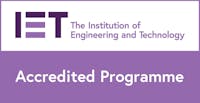
Institution of Engineering and Technology (IET)
CEng accredited by the Institution of Engineering and Technology (IET), fulfilling the educational requirements for Chartered Engineer when presented with an accredited MSc. In addition, the programme meets the educational requirements for registration as an Incorporated Engineer.

Athena Swan Bronze Award
We have successfully secured the Athena SWAN Departmental Bronze Award recognising a commitment to gender equality.
The Athena Swan Charter is a framework which is used across the globe to support and transform gender equality within higher education (HE) and research.
Employability
Enhancing your employability skills
Our course has been designed with graduate employability at its heart. Throughout the course we invite speakers from industry to share their valuable knowledge and experience in guest lectures and seminars. This provides an invaluable opportunity to network with the experts. At various stages during the course, we host specialist boot-camps delivered by digital forensics practitioners as well as provide opportunities to obtain vendor qualifications to enhance your career prospects.
Because we have close links with business and industry – with our academic team having worked in the sector – we know that your studies are always relevant, up-to-date and meet the exact needs of the current marketplace.
Recent graduates have been snapped up by specialist digital forensics companies or departments in a range of reputable organisations, including:
- SYTECH Consultants
- BT
- DiskLabs Ltd
- Capital One
- Deloitte
- Carbon Black
- PwC (PricewaterhouseCoopers)
- West Midlands Police
- 7Safe
- Warwickshire Police
- Kroll Ontrack
- Cheshire Police Constabulary
- CCL Group Ltd.
- Greater Manchester Police
- IBM
- London Metropolitan Police
- Capgemini
- Themes Valley Police
- Zepko
- Humberside Police
Our graduates forge rewarding careers in areas such as systems security, forensic accounting and fraud investigation and specialist digital evidence/high-tech crime units.
Placements
We aim to have you employer-ready by the time you graduate and as part of your course, you have the option of undertaking an industrial placement after the second year of study. Placements will also provide you with an opportunity to develop your practical expertise, earn money and try out a potential career path. It may not always be possible to get a placement in the digital forensic industry, so we actively encourage you to broaden your interests to allied sectors, for example, cyber security, data recovery companies as well as law enforcement agencies. We have successfully allocated placements for students at the following employers:
- Arcanum Digital Forensics
- Context
- Cheshire Police Constabulary
- Humberside Police
- DiskLabs Ltd
- Aperio Digital Investigations
- BBC
- IBM
- BT
- Rolls Royce
- Xerox
- TATA Motors
- Caterpillar
- TNT
International
Birmingham City University is a vibrant and multicultural university in the heart of a modern and diverse city. We welcome many international students every year – there are currently students from more than 80 countries among our student community.
The University is conveniently placed, with Birmingham International Airport nearby and first-rate transport connections to London and the rest of the UK.
Our international pages contain a wealth of information for international students who are considering applying to study here, including:
- Explore some of the good reasons why you should study here.
- Find out how to improve your language skills before starting your studies.
- Find all the information relevant to applicants from your country.
- Learn where to find financial support for your studies.
Facilities & Staff
Our Facilities
We are constantly investing in our estate and are currently in the process of spending £260 million on new learning facilities. This course will be taught at Millennium Point at the City Centre Campus.
The course is supported with a wide range of cutting-edge facilities in the City Centre Campus. We have a state-of-the-art computer games technology lab which contains high-performance PCs, Sony PlayStation development kits and a range of industry standard software including Unity, Unreal and a suite of professional Microsoft development tools.
We also have many open access areas where students can study together and even hire out laptops for use in these spaces and others within the university.
Within the University there are many internationally recognised research teams giving you the opportunity to collaborate with them on exciting interdisciplinary projects.
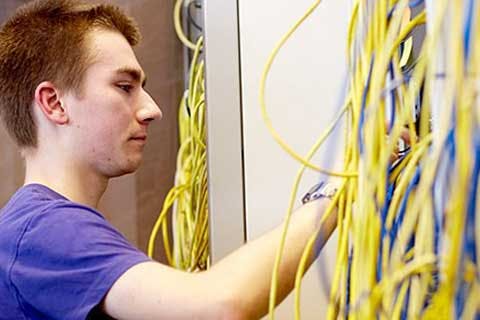
Computer networking
The laboratories are well-equipped for all our computer networking courses, as well as specialist areas for practical work such as voice-over internet protocol (VoIP), forensic and ethical hacking technologies, wireless and mobile technologies and radio frequency identification technologies to name but a few.
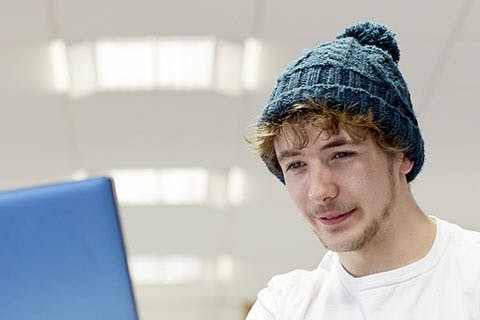
Software development and computer programming
There are a number of open access, software development and computer programming laboratories that can be used to develop systems and programmes, including database management systems such as MySQL, to name but a few.
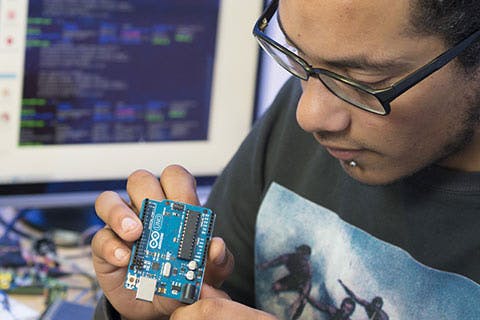
Systems laboratories
Our embedded systems laboratories are used to develop real-time systems, such as specialist hardware training and development resources, and industrial-standard software development and simulation tools. These include microcontroller software and robotics design and development, to name but a few.
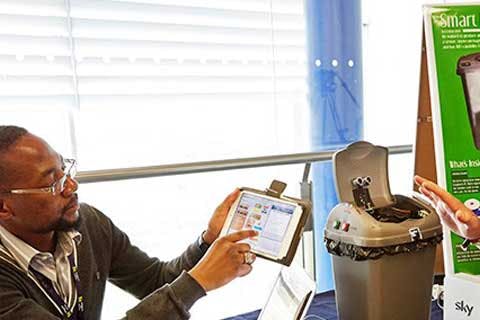
Electronic systems
To underpin the basic principles of electronic systems, we have a well-equipped laboratory of general and specialist test and measurement kits, including powered prototyping development boards, dual power supplies, frequency generators and counters and digital multi-meters to name but a few.
Forensic computing
Our successful development of forensic computing has led to a specialist forensics laboratory that is fully equipped with essential hardware and software for this sensitive area of study. The laboratory includes high-spec PCs with built-in multi interface Tableau write blockers, EnCase and FTK computer forensic software and steganography detection and analysis software, to name but a few.
More on our facilities
Our staff
Shahid Shabbir
Senior Lecturer
Shahid is a Senior Lecturer in Digital Forensics. Shahid is trained, certified and highly proficient in the use of professional digital forensics tools including EnCase, FTK and XRY, in addition to a range of professional data recovery and diagnostics technologies. His primary specialist areas include Digital Forensics, Data Storage and Recovery,...
More about Shahid